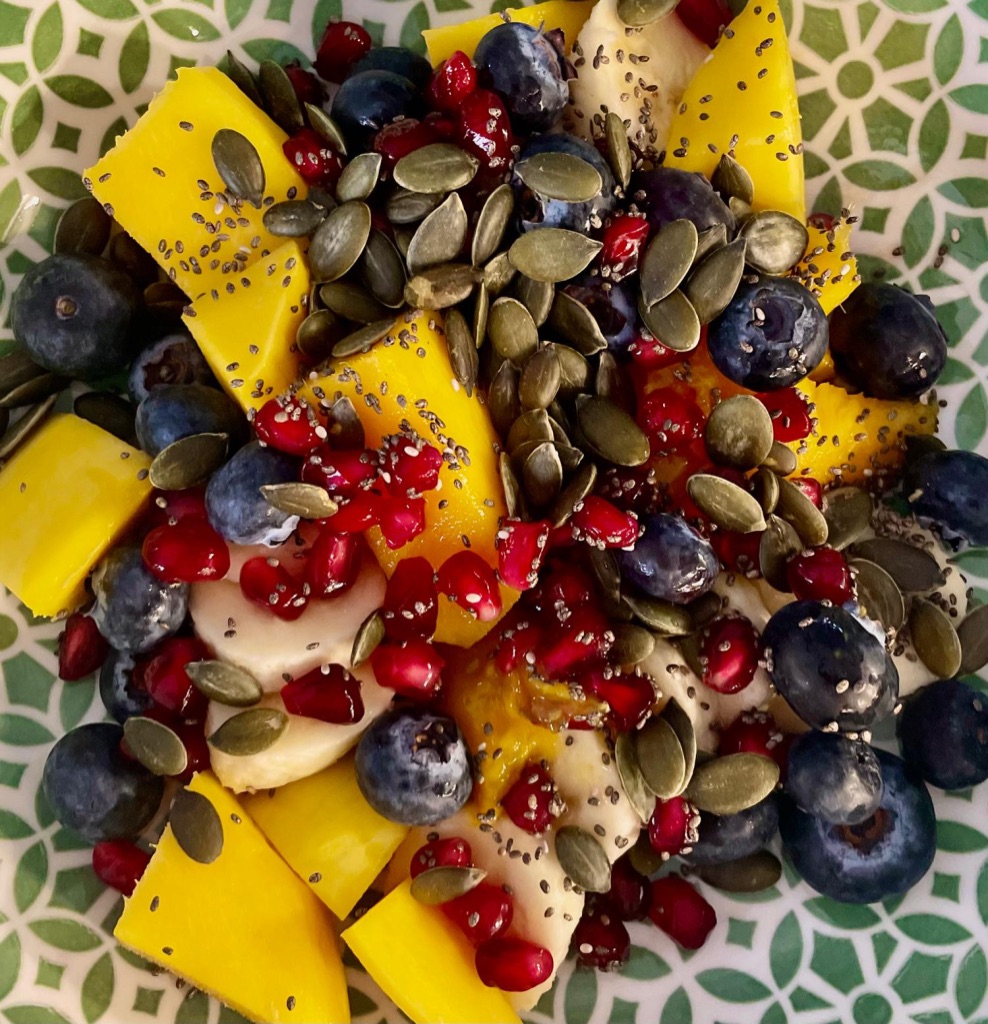Our CALM hub recommended reading for January and February is the new book Get Well Stay Well from Dr Gemma Newman aka The Plant Power Doctor and Amazon bestselling author.
We were also lucky enough to welcome her on January’s CALM hub workshop to get the inside track on the GLOVES framework and chat about some of the science backed wellbeing practices, practical tools and insightful case studies that Gemma shares in the book.
At Calm In A Box, we’re all about experimentation when it comes to culture and behaviour change so you can be well to do well.
So after reading the book over Christmas, I was inspired to give 30 plants a week a go…
Eating 30 different plants a week can boost the diversity and health of your gut microbiome. And in turn, it may affect many other aspects of your health.
Eating patterns, like the Mediterranean diet, which contain a wide range of plant foods have strong links to a reduced risk of long term health conditions, such as heart disease and type 2 diabetes. I also focus on plants which help reduce inflammation given my skin and immune system issues.
At first, I thought it was pretty impossible…
But if 30 a week sounds like a lot, you’ll be pleased to hear it’s not just fruit and veg that count. You can include grains, nuts, seeds, herbs and spices too. And there’s a handy checklist in the book to tick off as you go.
Some hacks that helped me, along with using Gemma’s checklist:
- Get ahead at the beginning of the day with a smoothie or fruit bowl. I go for banana, apple, mango, spinach and flaxseed smoothie or banana, mango, blueberries, pomegranates in a bowl sprinkled with pumpkin seeds and chia seeds. That’s 5 or 6 in the bag before I’ve even left for the school run.
- Add plants to existing meals rather than go completely plant based straight away. I added lentils into my trusted spaghetti bolognese recipe and nobody noticed! It made no difference to the taste but added to my weekly plant count. I think you could do the same with chickpeas or kidney beans.
- Add variety with lots of small sharer dishes – also good for weekends when you want a night of cooking. This way we got in carrots, cucumber, peppers, hummus, beetroot, sweet potato wedges and avocado along with chicken dippers and crusty bread.
- Remember you don’t have to go completely plant based which can feel really overwhelming. Just by adding in extra plants and a variety of plants, this will have a positive impact on your gut microbiome.
- Introduce some gentle competition with a daily family plant count: how many plants have you tried today. My little one loves beating everyone and has started drinking smoothies for breakfast to get her count up.
If you’d like to keep track of our CALM recommended reads and CALM hub workshops, then please join our CALM hub community by subscribing on the website.
You can also find more plant based recipes, along with other resources, on The Plant Power Doctor website: https://gemmanewman.com/recipes




